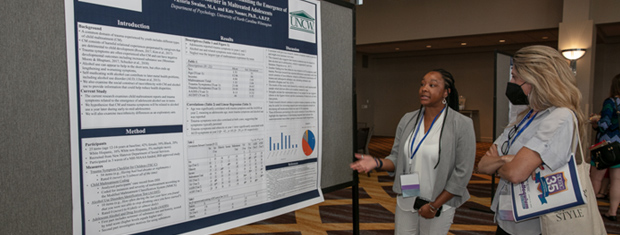




The APSAC Advisor is a peer reviewed quarterly news journal for professionals in the field of child abuse and neglect.
The APSAC Advisor provides succinct, data-based, practice-oriented articles that keep interdisciplinary professionals
informed of the latest developments in policy and practice the field of child maltreatment. It is designed to highlight
best practices in the field and publish original articles and current information about child maltreatment for professionals
from a variety of backgrounds including medicine, law, law enforcement, social work, child protective services, psychology,
public health and prevention in the U.S.
 If you wish to learn more about submitting an article to the Advisor, please click here.
If you wish to learn more about submitting an article to the Advisor, please click here.
This library contains Advisor issues dating back to the first issue in 1988. The most recent issue appears at the top.
Scroll down to select past issues by year and issue number. Once a publication appears in the box, you
can use the Enlarge button to open the document in a new window or tab (depending on how your browser is set up).
This will allow you to view the document with larger print.
To print a document, first use the Enlarge button to open the document in a new window or tab. Then use your browser's Print command.
To return here from a new tab, close the tab. To return from a new window, click your browser's Back button.
In the listing below, click on a year and issue number to see the articles in that publication.
1992 Number 2
A Practitioner’s Guide to Interpreting Research Results
What the heck is a "cohort?" Why is 'p' always less than something, never more than, and what kind of expression is that, anyway? I prosecute deviants, but after seven years at it, the only thing I know for sure is that there is no such thing as a standard deviation--yet you guys talk about them all the time. If a deviation was standard, it wouldn't be a deviation, but a societal norm. But norms are something else again.
The Impact of Testifying on Child Sexual Abuse Victims
How can child sexual abuse cases be prosecuted most effectively without imposing additional trauma on the child victims? The Child Victim as Witness Research and Development Program was designed to answer this question.
The Health and Care of Foster Children
The purpose of this article is to summarize current knowledge about the health of children in fOster care, and to present some approaches to improving foster children's health. The care of foster children is clearly a child abuse issue, For at least ten years, most children in foster care have been there for protection from very serious abuse or neglect. Infants of drug addicted mothers are making up a larger and larger proportion of children entering foster care. Few states place these infants just because of perinatal maternal drug use, however, most also require that they be neglected or abused to a degree which would require out-of-home care in the absence of maternal addiction.
Professional Exchange: Videotaping Forensic Interviews: Pro or Con?
Two perspectives on the videotaping of forensic interviews.
Child victims of sexual abuse often make convincing disclosures to parents, doctors, teachers, or other people they trust. When the prosecution offers such "out-of-court" statements at trial as evidence that a child was abused, however, such statements are considered "hearsay" and under the hearsay rule cannot be admitted to prove the truth of the statement.
Interdisciplinary Teams: Do They Help Victims of Child Abuse?
There are no good data to support the view that interdisciplinary teams have a positive impact on the prevention, treatment, or outcome of child abuse cases. Outcome measures relying on crude measures of success for clients are fraught with imprecision owing to the enormous complexities of such families, confounding variables, and effect modifiers. Case-control studies are lacking, leaving us with experience alone to assess the efficacy of particular models of service delivery.
The purpose of Journal Highlights is to alert readers to current literature on child abuse. Selected articles from journals representing the variety of disciplines reflected in APSAC s membership are presented in the form of an annotated bibliography.
APSAC Advisor 5(2) - Full Issue